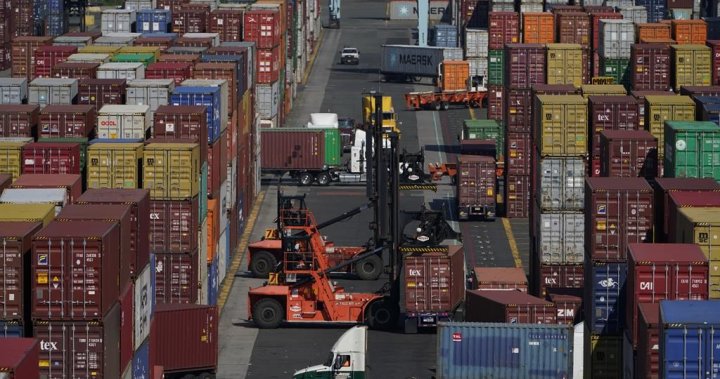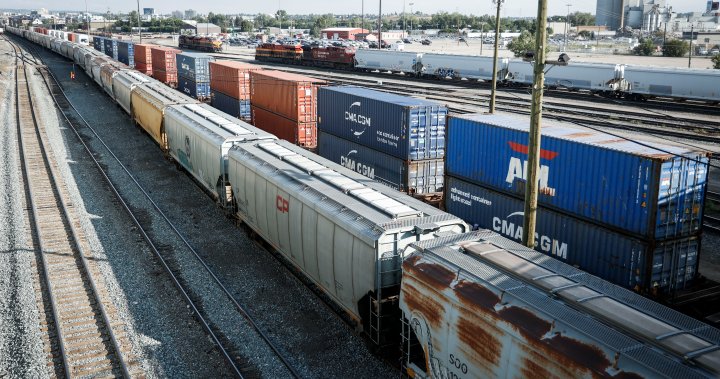The union representing 45,000 striking U.S. dockworkers at East and Gulf coast ports says it has reached a deal to suspend their strike until January to provide time to negotiate a new contract.
The International Longshoremen’s Association and the U.S. Maritime Alliance said in a joint statement they have reached a tentative deal on wage increases, a key sticking point in the labour dispute that has snarled North American supply chains for two days.
Workers will return to the job immediately, the union said, and the two sides will “return to the bargaining table to negotiate all other outstanding issues.”
“Effective immediately, all current job actions will cease and all work covered by the Master Contract will resume,” the joint statement said.

The union went on strike early Tuesday after its contract expired in a dispute over pay and the automation of tasks at the ports from Maine to Texas. The strike came at the peak of the holiday shopping season at 36 ports that handle about half the cargo from ships coming into and out of the United States.
The strike also affected goods that enter Canada from those ports, which are able to handle far more capacity than Canadian East Coast ports.

Get breaking National news
For news impacting Canada and around the world, sign up for breaking news alerts delivered directly to you when they happen.
Montreal’s dockworkers ended a 72-hour strike on Thursday. That action shut down two terminals that handle some 40 per cent of container traffic at Canada’s second-largest port.
The U.S. walkout raised the risk of shortages of goods on store shelves if it lasted more than a few weeks. Most U.S. retailers had stocked up or shipped items early in anticipation of the work stoppage.
There are still concerns about backlogs at the ports resulting from the strike, even a short one. Economists had predicted it would take up to six days to clear those backlogs for every day the strike lasted.
The Canadian Chamber of Commerce says $3.6 billion worth of goods cross between the U.S. and Canada every day.

U.S. President Joe Biden had declined to intervene in the strike despite the potential economic impact, but put pressure on the U.S. Maritime Alliance this week to “come to the table and present a fair offer to the workers.”
His statement on Tuesday cited the “record profits” carriers have made since the pandemic shutdowns and argued it was time for workers to share in those benefits.
Biden applauded the tentative agreement in a statement from the White House on Thursday, noting the need for the ports to reopen for critical supplies to be rushed to states impacted by Hurricane Helene.
“With the grace of God … it’s going to hold,” the president told reporters after landing at Joint Base Andrews on Air Force One Thursday night.
Acting U.S. Labor Secretary Julie Su had been in direct contact with both sides ahead of the strike to try and spur negotiations along.
—With files from the Associated Press
© 2024 Global News, a division of Corus Entertainment Inc.





